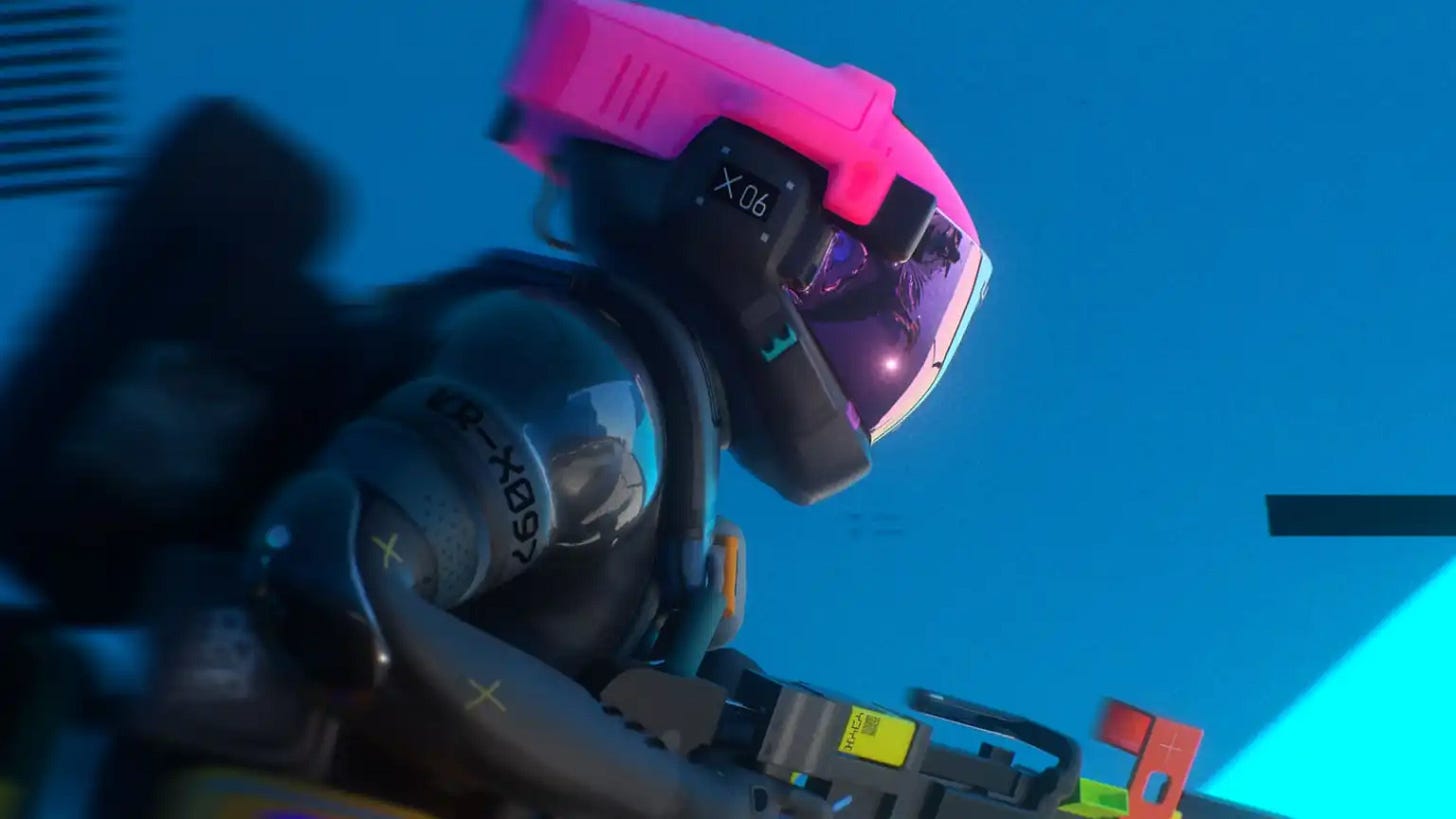The conclusion to Bungie's marathon to their next title may have come into shape; will they find concord with their audience?
Sony's killer v. killers app hopes to be the thread that unites their frayed live-service tapestry
In a time before man put Death Stranding upon a mobile phone, Bungie’s Marathon trilogy aspired to deliver intricate first-person action to Apple’s streamlined MacOS - whilst addressing the inevitable rampancy of AI. However, the studio swiflty pivoted to more conventional means of production, eventuating in a renowned series of titles united under the name of a Beyoncé single. Upon their uncoupling from Microsoft, Bungie found their destiny in maintaining live-service ecosystems, reconciling their aptitude in environmental storytelling with irresistable gameplay revolutions.
When Halo evolved combat, they were against slim competition in the multiplayer shooter space - particularly within a milieu populated by gooey grunts and bifucrated lightsabers. Similarly, Destiny’s iconoclastic model of service did not have a direct peer upon launch, reaping $325 million in sales over its first five days. Evidently, Bungie have a record of nurturing a nascent demand for novel experiences. Nevertheless, the discrepancies in philosophy distinguishing these eras eventuated in a dire crisis of identity; surfeiting the scope of Destiny’s ambition required internal and external contraction. To this present moment, the industry writ large has efficiently replicated individual components of Bungie’s defining duopoly, stratifying their centrality. Consequently, veterans of Destiny 2 remain entrenched in its increasingly labyrinthine story; neutrals are dissuaded in favour of fresh endeavours.
Marathon - a mononymous revival of the aforementioned - was announced in May of 2023 with a sumptuous trailer, featuring prominent acid-washed biopunk aesthetics; an ink-and-pastel spin on Ghost in the Shell. Marathon’s vibrant anachronisms drew a crowd outside of Destiny’s hermetic clique - only to find it was in service of an extraction shooter. Indeed, Bungie were late to this party; did the genre only just send them an invite? Escape from Tarkov, Hunt: Showdown, and - to a particular end - Helldivers 2 have courted the greatest share of players, sporting a notably niche audience due to the genre’s inextricable difficulty. However, the latter becoming a rapturous phenomenon, ostensibly from thin air, evinces the possibility on Sony’s behalf of challenging their loyal crusaders. Oh, that may be an important point: Bungie are a subsidiary of the Sony Group Corporation.
To those unaware of PlayStation’s disasturous pivot to prioritising games-as-a-service, rather than games-as-a-whole, their track record can be surmised through the following titles:
Destruction AllStars: OpenCritic score of 62, servers down as of May 2024.
Foamstars: OpenCritic score of 60, player count dwindled by 94.92% two months from launch.
Spider-Man: The Great Web, a multiversal spin on Insomniac’s Spider-Man, inspired by the highly successful Spider-Verse films: privately cancelled.
The Last of Us: Factions: Publicly cancelled.
Concord: Cancelled after two weeks.
Twisted Metal: Cancelled, despite the fair success of a television adaptation.
Payback, a third-person Destiny spinoff inspired by Warframe and Genshin Impact: Cancelled to support Marathon’s languid development.
Helldivers 2: Viral phenomenon!
The Great Web was the most secretive of these projects, unveiled through a hack on Insomniac that led to an erosion of their slate. However, if Sony believed Concord was a safer bet than a multiplayer Spider-Verse title, a thorough interrogation of their strategy may be necessary. Or, if I were to slice through this quandry with Occam’s Razor, it could be explained neatly through the sunk-cost fallacy. Nevertheless, Marathon arrives at a critical juncture in PlayStation’s deeply rationed live-service buffet: a studio cannot profit upon helldiving alone.
Consequently, how will Marathon fare as both the savior of a generational project and a young challenger to established extraction titles? Call of Duty’s DMZ mode was sequestered from its main attractions, settling indefinitely into a remote niche. Ubisoft cancelled The Division Heartland ignominously, pivoting towards established brands with broader accessibility. The weight of expectation may require extensive inventory management; if it does not land in 2025, Bungie’s next jump may not have a corporate cord to support them. There are glimmers of hope, however: external playtests have commenced. Conceringly, the form of the game is still rather ambiguous: its price - said to have settled upon Concord’s kiss of death, $40 - and whether it will employ custom characters or prebaked heroes. Following on from their last attempt at a live-service, Sony may encourage the former.
Perhaps Marathon’s destiny lay in The Finals’ model of success: courting a dedicated playerbase through a vivacious union of tight gameplay, cyber-psychedelia, and a steady stream of content updates. Ultimately, it has to buy Bungie enough internal capital to stave off Sony’s incursions - it is an existential battle, reminiscent of the extraction genre itself. If the game can inspire the same pulsating intrigue of the trailer, Helldivers’ back pain from carrying Sony’s games-as-a-service slate may lessen.




